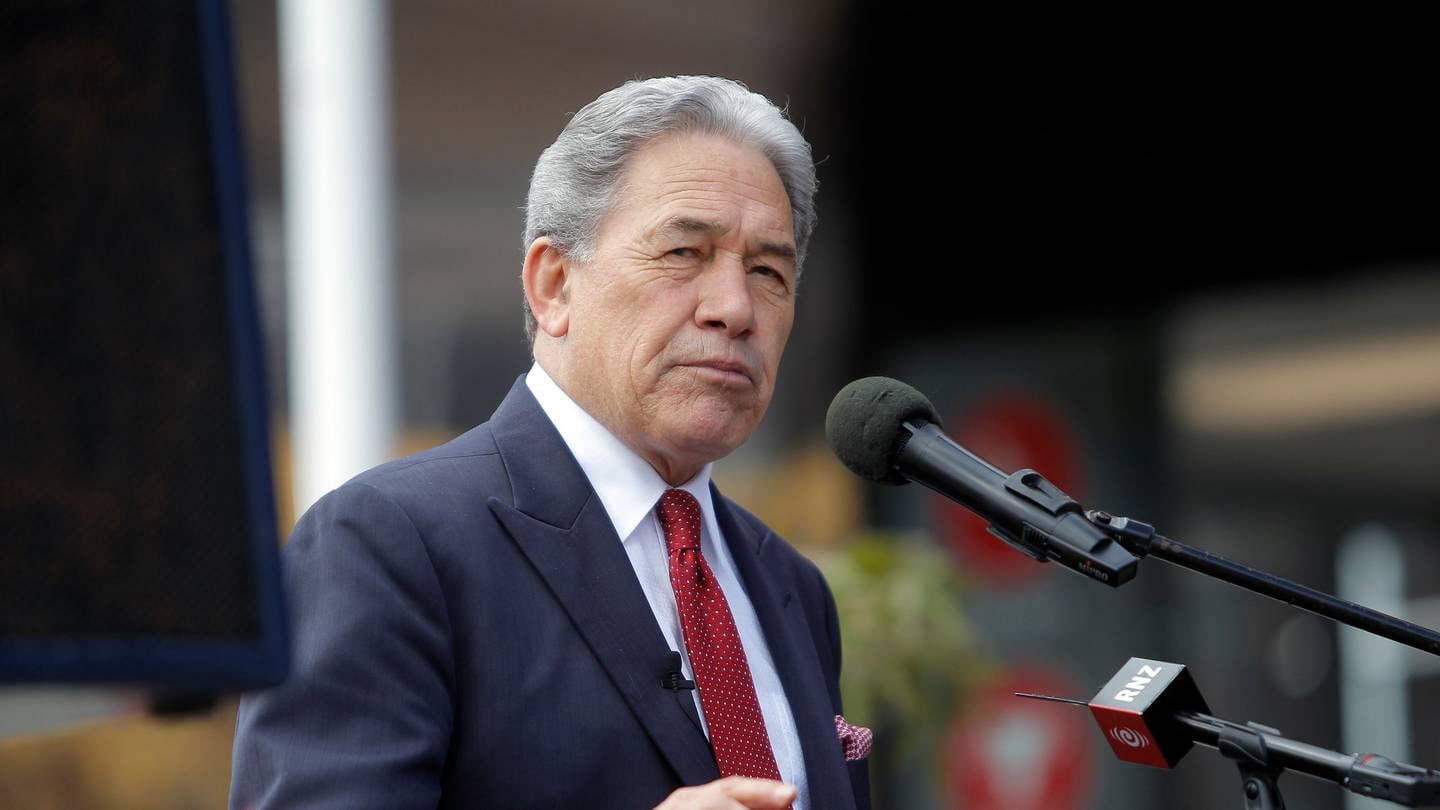Tova O’Brien is Stuff’s Chief Political Correspondent and host of the political podcast, Tova. Listen to the latest episode ‘Talking tax - and the rest - with Labour Leader Chris Hipkins’, here.
Winston Peters went above the Finance Minister’s head and negotiated chief-to-chief with the Prime Minister to spare his Ministry of Foreign Affairs and Trade from the full force of the public service cuts.
Documents released under the Official Information Act reveal that Peters wrote to Finance Minister Nicola Willis in February, telling her that to deliver cuts at the level she was requiring would limit Mfat’s ability to advance the Government’s international agenda.
Peters reminded Willis that he’d kicked the conversation up the chain to the Prime Minister:
“As you are aware, I am in discussion with the Prime Minister on the Coalition Government’s priorities for the foreign affairs portfolio… and with careful regard to the Coalition Government’s fiscal sustainability programme.”
The letter, dated 15 February, lays out what the Ministry would have to do if it were to achieve the savings target set by Willis, but Peters signals that he’s not expecting it will come to that based on his conversations with Christopher Luxon.
“Comments in this letter and the savings proposed are therefore caveated as those discussions [with the Prime Minister] continue.”
Instead of making the required baseline savings of 6.5% that all other government departments were forced to find, Mfat only had to cut 1% of its budget, $15 million.
Asked if Peters got special treatment through the Budget negotiations, the Prime Minister told Stuff, “not that I’m aware of, no.”
And Willis told Stuff, “I am secure enough in my position that I am not concerned Chris and Winston meet and discuss issues. In fact, I would be concerned if they did not.”
Willis set a deadline of 16 February for Mfat to submit on how it would reach its savings target and in preparing Peters’ response, his officials noted that “you [Peters] remain in consultation with the Prime Minister over the level of savings the Minister is expected to achieve.”
A spokesperson for the Minister of Foreign Affairs wouldn’t tell Stuff how Peters was able to secure a reduced savings limit: “We do not divulge the details of Budget discussions between Ministers.”
But they added it would be expected that the two politicians, who help lead the Coalition Government, would engage on a regular basis on a range of issues.
“Minister Peters’ priorities for his foreign affairs portfolio, as well as resourcing for the Government’s international objectives, are one such issue.”
Diplomatic posts at risk
In the Budget documents, Mfat lists the cuts that would have to be made if it were subject to Willis’ blanket 6.5% savings target and reveals that two diplomatic posts were at stake.
“The reductions proposed are the closure of two posts,” Mfat officials write.
But a spokesperson for Peters told Stuff that neither the Minister nor Mfat proposed to close two posts.
“As part of the Initial Baseline Exercise, Treasury asked the question: if Mfat were subject to the 6.5% savings target, how might it meet that target? Ultimately, Mfat was not subject to this savings target, so the issue did not arise,” the spokesperson said.
Jobs on the line and voluntary redundancies
More than 6000 public servants have lost their jobs as a result of the Government’s cuts.
In official documents, Mfat warned that people and diplomatic posts make up the majority of its budget and that cutting them would compromise its ability to function.
“If the overall savings target was required to be found from our departmental appropriation alone this would constitute a significant reduction (some 15%) and would severely impact on the Ministry’s ability to deliver services and meet the new Government’s agenda.” 15% represents 270 of Mfat’s 1800 staff.
Mfat made its vastly reduced savings through a combination of modest cuts to foreign aid, consultants and contractors, Antarctic research and Asia New Zealand.
But Budget documents from April this year reveal the Ministry implemented a hiring freeze and was also considering voluntary redundancies.
“The Ministry is exploring options for voluntary early exits although remains mindful of the need to maintain foreign policy and trade capability and capacity.”
Mfat launched a “vacancy audit” to identify long-term vacancies and remove them.
“In addition to the vacancy audit… the Ministry has implemented a vacancy freeze,” the documents show.
Mfat has been contacted for comment.
- Stuff


